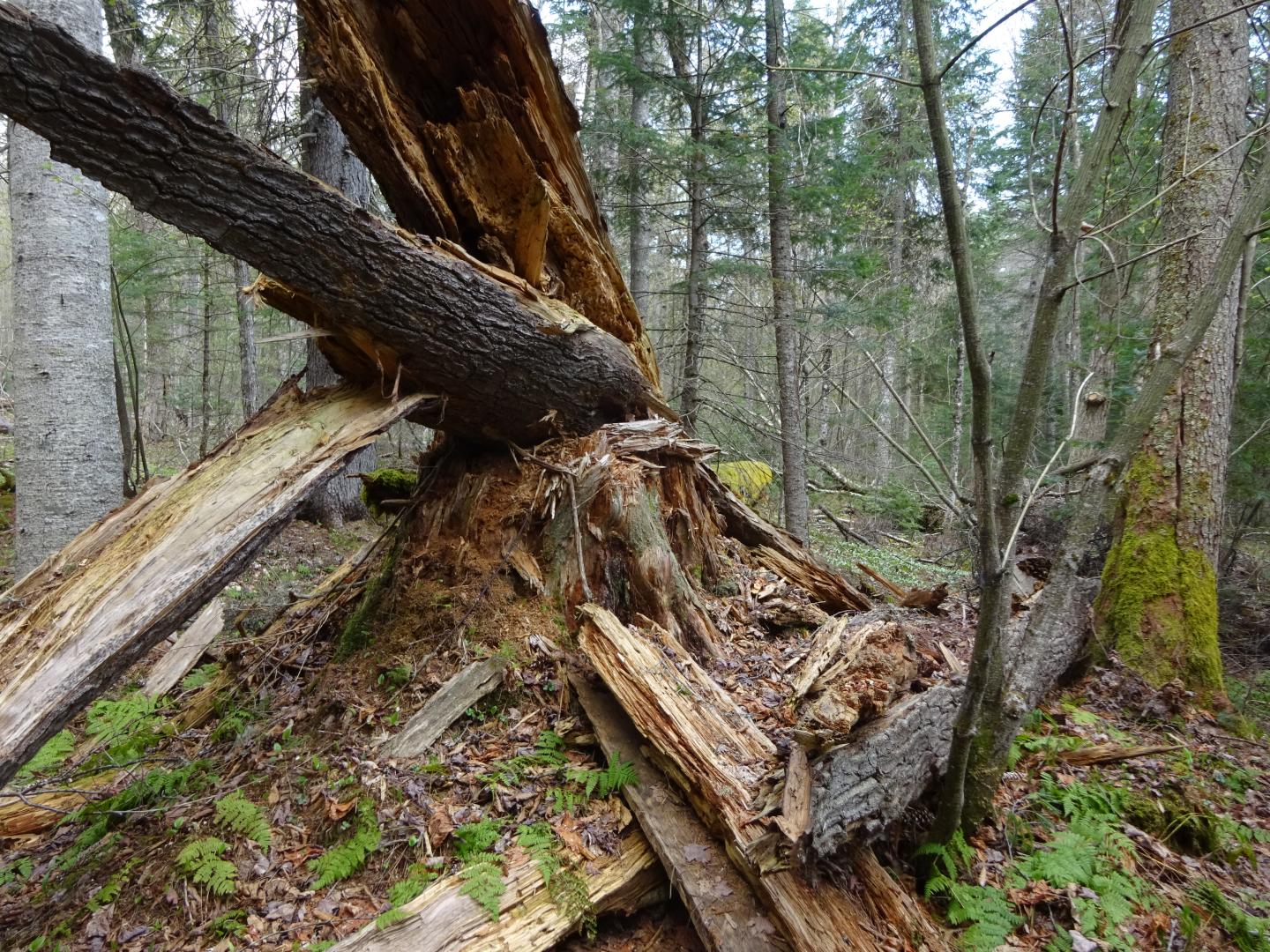With age, forests in eastern US and Canada become less vulnerable to climate change, study finds

New research finds that older forests in eastern North America are less vulnerable to climate change than younger forests, particularly for carbon storage, timber production, and biodiversity.
Older forests in eastern North America are less vulnerable to climate change than younger forests – particularly for carbon storage, timber production, and biodiversity – new University of Vermont research finds.
The study, to be published in Global Change Biology‘s June 12 edition, analyzed how climate change is expected to impact forests across the eastern United States and Canada. It found that increased forest age reduces the climate sensitivity of forest carbon, timber, and biodiversity to projected increases in temperature and precipitation. In other words, increased age helps to safeguard forests from climate change.
“This study shows that older forests in the Upper Midwest to New England are uniquely resilient to climate,” says Dominik Thom, lead author and postdoctoral researcher in UVM’s Rubenstein School of Environment and Natural Resources and Gund Institute for Environment. “Our finding that essential services are better protected against climate change by older forests is a milestone in the debate on how to prepare our forests for the uncertain environmental conditions ahead.”
Analyzing large amounts of field data from 18,500 forest plots – from Minnesota to Maine, and Manitoba to Nova Scotia – the study identifies priority regions for forest climate adaption efforts. Younger forests east and southeast of the Great Lakes were less resilient to climate change, showing projected declines in carbon storage, timber and biodiversity.
“Our study identifies opportunities to make forest management more adaptive to global change,” says William Keeton, forestry professor in UVM’s Rubenstein School and Gund Institute. “This could include enhancing older forest conditions on landscapes within reserves, for example, and using extended cutting cycles and restorative forestry practices in working forests.”
While the study found that forests’ climate resiliency increased with age, scientists often characterize older forests as over the age of 150 years. Older forests are more structurally complex, with trees growing at multiple heights and larger canopy gaps, which free up growing space and increasing light availability for a mix of species.
“This research presents new and entirely novel findings that are sure to push the needle in our understanding of forest dynamics,” says William Keeton. “The types of ecosystem services and biodiversity provided on forested landscapes today are likely to change dramatically into the future, both as forests age and our climate changes — a message relevant to anyone interested in forests.”
The study highlights the promise of experimental efforts at UVM to accelerate old-growth forest conditions by mimicking natural forest disturbances.
###
These findings are the culmination of a five-year, interdisciplinary research project funded by a $900,000 USDA McIntire-Stennis Cooperative Forestry Research Program grant through UVM to assess ecosystem services in forested landscapes.
Thom and Keeton’s co-authors include Marina Golivets, Laura Edling, Garrett Meigs, Jesse Gourevitch, Laura Sonter, and Gillian Galford of UVM’s Rubenstein School and Gund Institute for Environment.
Media Contact
Basil Waugh
[email protected]
Related Journal Article
http://dx.




